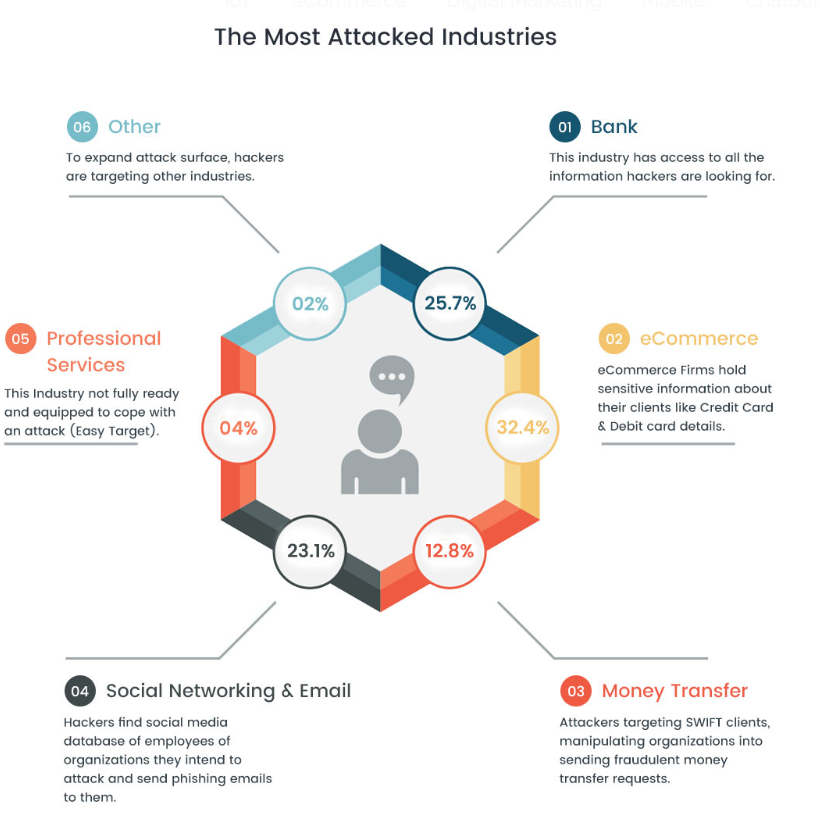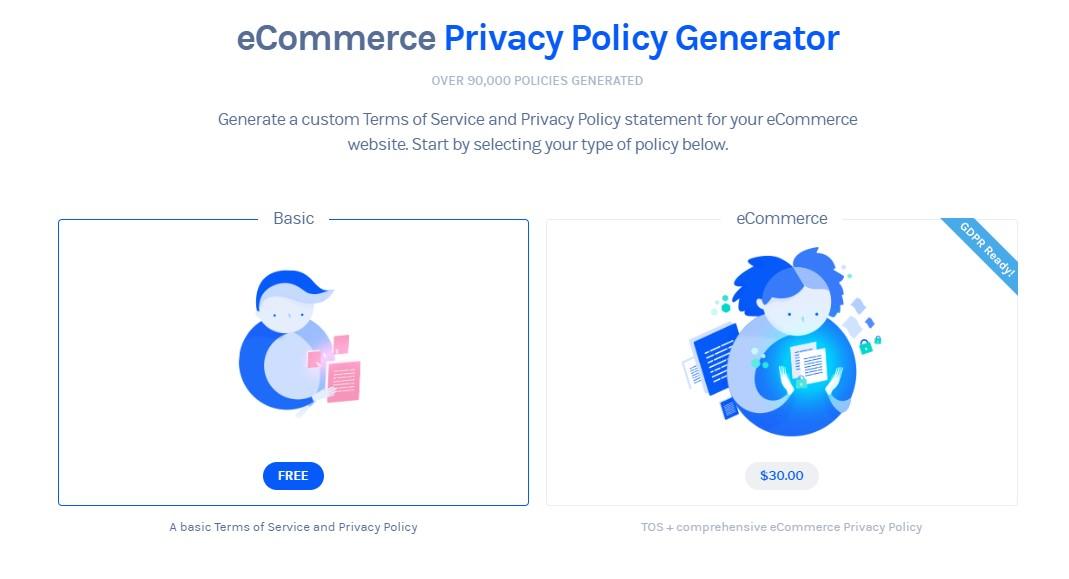People don’t put their trust to just anyone.
If you want to earn someone’s trust, you need to deem yourself worthy. You need to prove that you’re reliable and dependable as a person during their time of need, while also being unafraid to tell them the truth—no matter how much it hurts.
That’s especially true in the world of eCommerce.
Why?
Because once you earn a consumers’ trust, they believe in the products or services you’re selling. That’s bound to lead to an initial sale, upping your conversion rates and the chance of seeing existing customers make additional purchases as well as refer your business to their family and friends.
Trust signals help with this: Small elements that make a customer who’s debating whether to purchase from you believe, confide and trust in your business.
In this guide, you’ll learn why trust signals are important—and how you can use these conversion-dripping elements to earn the trust and respect of the target audience you’re trying to sell to.
Why Do We Need Trust Signals in Ecommerce?
No matter what you’re selling, there’s one thing that all eCommerce businesses should bear in mind when selling online: To make a sale with your online store, you need to show people why they should buy from you.
Granted, awesome products along with customer rewards and perks (like free shipping) can influence your conversion rates—but it’s not enough. The trustworthiness of the site selling the product is just as important.
In fact, now’s the best time to establish trust signals as users become more inundated with online shopping.
Over 67% of millennials prefer shopping online, rather than in brick and mortar stores.
Why?
Because the ease and convenience of online shopping trumps the stress of wandering around huge shopping malls to browse what they’re looking for.
…With that said, it probably comes as no surprise to learn that eCommerce is the most attacked industry. The online shopping market accounts for 32% of all industry-wide attacks, purely because eCommerce websites hold sensitive information that hackers can exploit:

Do you understand why consumers are so afraid to hand over their personal data—such as names, addresses and banking details—now?
5 Trust Signals You Can Implement on Your Online Store
Whether you’re just starting your eCommerce business or desperately trying to improve your conversion rates, here are the most effective trust signals you should be using on your online shop:
1. Install SSL certification
It’s impossible to sell a product online without getting information from the person who’s purchasing it. But with eCommerce being prone to hacking and attacks, customers know there are always risks when entering their sensitive information online.
As an online retailer, you need to understand that there’s always a possibility that hackers can get hold of your customers’ information and steal their identity.
The most common reason for this happening is if customers purchase through an unsecure website—but installing an SSL certificate secures the connection between the browser of your customers and your website.
In a nutshell: Secure Sockets Layer (SSL) certificates encrypt the interaction between customers and your site, preventing hackers from stealing their personal information.
There are different SSL certificates to choose from:
- Basic domain validation: Covering the basic encryption features and validates you as the domain owner. It is also the fastest certificate to get.
- Organization validation: A more comprehensive SSL certification which requires you to submit authentic verification details before getting the certificate within days.
- Extended validation: Providing the highest security. To get this certificate, however, you need to undergo different verification processes which could take weeks.

Your domain provider should offer SSL certificates. But if not, you can buy certificates from sites like SSLs, Comodo, RapidSSL, or your hosting provider.
Once you’ve successfully purchased and installed the certificate, you will see the lock icon and “Secure”—or your company name—on the address bar, just before the URL:

2. Set up legal pages on your site
If you want to legitimize your eCommerce site, you need to create legal pages like Privacy Policy and Terms and Conditions.
These documents allow you to establish the ground rules on how customers must use your site. But why do they play such a huge role in influencing trust?
The simple answer is: It proves you’re a legitimate business. If you’ve got a set of rules and conditions that a website visitor needs to abide by, it proves you’re on the right side of the law—and much more trustworthy than one that doesn’t.
You need to be comprehensive with your legal pages, so get help from a legal adviser before whipping out these documents and attaching them to you website.
However, if you want to publish a Privacy Policy and Terms of Service pages on your site quickly, you’re able to grab a template from GetTerms.io.

The site offers a free version of the documents, but it’s best to get the eCommerce Comprehensive version for $30. This covers the information you will get from customers, third-party services, and information about the Data Controller and Data Protection Officer—a critical part of any legal page, especially with the introduction of GDPR this past May.
Just to reiterate: The document you will receive from GetTerms.io is not a substitute to legal counsel. Therefore, it’s best to get advice from a lawyer about your Privacy Policy and Terms of Service to ensure that your documents protect your site from possible legal complications.
3. Reviews and testimonials
Nothing screams trust more than user reviews and testimonials. Instead of telling people how trustworthy and awesome your eCommerce site, let other people do the talking for you!
Since they don’t come from a place of bias towards your brand, their take on your site and products comes from a genuine place. That’s why 88% of consumers trust online customer reviews as much as they trust reviews from their friends and family.
Email them for reviews
To get more reviews about your site and products, you need to make it easier for customers to send them.
The easiest way to do this is to shoot them an email asking them to review the product they purchased, and giving a discount code for their next purchase to show your gratitude.
By incentivizing their efforts, you increase the chances of getting an honest review from them. Plus, it helps to further the trust between you and your existing customers customers, and make them purchase from your site again.

You can use a marketing automation tool like Active Campaign, Campaign Monitor, or Drip to do this. Either option allows eCommerce businesses to create trigger-based drip campaigns, including your routine ask for reviews.
The best part? You only have to set this up once and let the tool do the work for you.
Leverage social media
You can also leverage social media to drive more reviews to your eCommerce site.
For example: If you’ve already created a Facebook Page for your online shop, you can activate the Review tab so people can write their reviews there. You can also place a link to the Facebook Review tab from your site so people can click on the link and leave their opinions about your site.
If you have yet to claim your Google My Business account for your online store, then now’s the time to do so!
Once you’ve successfully set up and verified your Google My Business account, people will see your business information on SERPs whenever users enter your brand name on the search bar. They can also see reviews that other people have written about your site—boosting trust from other people’s endorsements.
What about negative reviews?
…That’s a question on every online retailers’ lips.
While it’s best to have positive reviews from all your users, don’t be afraid of negative reviews. They provide an opportunity to improve customer relations—especially if you’re taking the time to answer, question or resolve the issue being discussed.
The best way to deal with negative reviews is to publish them on your site and offer a quick rebuttal to their argument. Customers will appreciate your zest and candor about the reviews, and help improve your trust with them.
4. Offer the ability to reach out to you
Most websites don’t offer the same personal touch as a brick and mortar shop. Whenever you visit an online store, a person won’t greet you and guide you in the process of buying from your site.
This personal touch builds trust because you get to understand who you’re talking to. Instead of a nameless, faceless brand, customers who are interacting with a person immediately build more trust through personal connections.
…But that doesn’t mean it’s impossible to see the same benefits on your eCommerce site.
Contact forms
You can set up a contact page—and include a form there—so people can leave you a message.
There are different form widgets to choose from depending on the platform you’re using. WooCommerce for WordPress offers you choices for your contact form plugins. The same goes with Shopify, BigCommerce, and Magento.
However, when using contact forms to build trust, remember: Don’t make them wait.
On average, it takes 12 hours for customers to receive a reply from a site owner. The sooner you can provide a response to their query, the better.
Live chat
79% of customers prefer live chat because it provides them a quick response to their questions, and helps them make informed decisions—just like they would at a traditional store.
As a result, 41% of shoppers trust an online store if they see a chat widget on the page, meaning it’s a key trust signal that you should be exploiting on each key page of your eCommerce website.
The choice of chat widget for your eCommerce store depends on different factors, such as:
- Ease of use
- Customization
- Pricing
- Volume of queries you get regularly
To get a feel for live chat, dip your toes in the water with free options like Zendesk and PureChat. This can help to determine how many live chats your site can muster in a day or two.
If the free ones don’t suffice, you can move on to the paid tools like Intercom, LiveChat, and Drift.
However, it’s not enough you have a live chat widget present on your site; You need someone who will manage your online shop 24/7 so customers can guarantee a reply in the shortest time possible.
Some live chat platforms offer an agent who will take care of all your live chat needs for a nominal fee. So, if you’re hard-pressed on time and want to give the responsibility of talking to every customer to someone else, then an online agent is perfect for you.
5. Engaging content
Customers gravitate towards brands that provide them value. The best way for eCommerce sites to do this—while making sure it appeals to their target audience—is through the content they publish online.
Remember how earlier, we discussed the impact of personal connections on the trust a consumer has with a brand? Blog posts, podcasts and videos can all help to do that.
By providing potential customers with the right information at the right time (i.e. when they’re searching for it on Google), you can gain their trust—not just as a customer, but also a believer of your brand.
Just take a look at this YouTube video from business tycoon Gary Vee. By going behind the scenes of his business and creating engaging content, he’s building trust with his audience:
Notice how this type of content doesn’t use hard-sell techniques that turn off customers in an instant? Sales take a backseat—it’s all about giving customers value through content, and seeing the trust follow.
Are You Ready to Use these Trust Signals and Increase Your Conversion Rate?
Implementing the trust signals above may take time and effort. Getting all customer reviews, for instance, and building a strong content marketing strategy, won’t happen overnight.
However, once you can showcase them on your site, the sky’s the limit with your conversion rate. These trust signals are designed to build trust and credibility for your online store—the most crucial thing you can do for your business.
Remember: Without trust, nobody will buy from you and you won’t make money.
So, use a combination of the trust signals we’ve explained to encourage potential customers to believe in your brand and what you stand for. From there, you give them the confidence to purchase from your site.

 Anthony Capetola">
Anthony Capetola">


